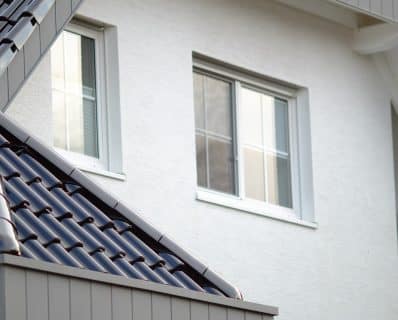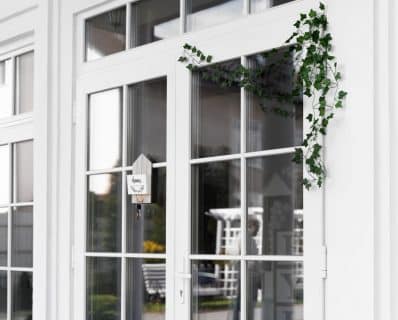Understanding Warranty on Windows: A Comprehensive Guide

Essential components that have served our homes from ancient times, ushering in light, ensuring proper ventilation, boosting energy efficiency, and fortifying security. Сertainly you guessed that we are talking about windows. When they experience issues, the warranty on windows serves as your safeguard and protective measure.
When you decide to invest in new windows for your home, the quality of the product isn’t the only consideration.
It’s also essential to understand the kind of warranty you’re getting. This is the assurance that can potentially save you a lot of trouble in the event of unforeseen issues with your windows in the future.
Contents
Why Warranties Matter
Homeowners need to be meticulous about not just the quality of the window product they’re investing in but also the service warranty it comes with. It provides peace of mind, ensuring any mishaps involving the product are covered.
However, it’s important to note that not all warranties are crafted with the consumer’s best interest at heart.
In the subsequent sections, we aim to demystify the intricacies of window warranties, illuminating their typical coverages, exclusions, and how they can be an asset in safeguarding your long-term investment.
Peace of mind
A window warranty provides homeowners with the assurance that their investment is protected. It eliminates the stress of potential unforeseen repair costs, making sure that if anything goes awry, there’s a safety net in place.
The benefits of the inner calm may include:
- Consistent comfort — knowing that your windows are under warranty means you won’t have to tolerate any discomforts like drafts or leaks, ensuring a consistent living environment;
- Financial predictability — unexpected window repairs can be costly. A warranty ensures that you won’t be hit with surprise expenses, allowing for better budgeting;
- Trust in quality — a warranty often reflects the confidence a manufacturer has in its product. This means you can trust in the quality and durability of your windows;
- Reduced stress — home maintenance can be a source of worry. Having a warranty in place alleviates concerns about potential window issues.
The serenity that comes with knowing your windows are backed by a solid warranty cannot be overstated. The warranty is more than just a document. It represents a commitment from the manufacturer to stand by their product.
This pledge also signifies their dedication to assisting homeowners in upholding the integrity of their homes. Always prioritize understanding the specifics of any warranty, ensuring that it offers genuine protection and not just hollow promises.
Reflects manufacturer confidence
A comprehensive warranty is often a sign of a manufacturer’s trust in its own product. If a company is willing to stand by its product for an extended period, it usually indicates quality and durability.
Financial savings
In the event of a product defect or malfunction, warranties can save homeowners significant amounts of money. Without them, the cost of repairs or replacements could be huge. Unless you’re applying to a professional team in Toronto, Ontario or any other area that loves their work.
Resale value
Homes with products covered under long-term warranties often have an edge in the real estate market. Potential buyers find such warranties attractive as they provide assurance against future window-related expenses.
Consumer awareness
Warranties compel manufacturers to be transparent about what’s covered and what’s not. This transparency educates consumers, enabling them to make informed decisions based on official sources.
However, as earlier mentioned, it’s paramount for homeowners to approach warranties with a discerning eye.
Unfortunately, the market is full of warranty on windows that are designed more to protect the manufacturer than the consumer.
Some warranties come laden with limitations and conditions that can make them almost void when the need arises.
Decoding the Warranty on Windows
A window warranty is a formal commitment between the window maker and you. It lays out the specifics about how repairs, replacements, or refunds will occur in the event of defects or malfunctions over a set period.
It’s essential to know when the warranty becomes applicable and, crucially, when it might not.
Yet, the term warranty can sometimes be just a sales tactic. Some companies fill their warranties with so many clauses and exceptions, which might be overlooked at the point of sale. Your focus, therefore, should be on understanding potential exceptions.
Scope of Protection
A prevalent issue with many window warranties is their limited scope. They might cover either the product or its installation, but seldom both. This could mean that if a problem arises, you might find yourself caught between the product maker and the installer, trying to determine who is responsible.
For instance, if your bay window incurs damage and was installed by another firm, determining accountability becomes a chase.
Juggling two disparate, narrow warranties can be daunting. What homeowners really need is a warranty that covers both the product and its installation. This ensures a more streamlined process should issues arise.
Transferability and Duration
The transferability of a warranty is another essential factor. Some warranties might lapse if you sell your property, so it’s always beneficial to have a transferable warranty. This not only enhances the resale value of your home but also provides reassurance to future owners.
Duration is equally important. Warranties vary in length, with some even offering lifelong protection. Generally, a longer warranty indicates the manufacturer’s confidence in their product’s durability.
Limitations to Keep an Eye On
Every warranty comes with exclusions. It’s crucial to understand these so you aren’t caught off guard later.
Typical exclusions to watch for:
- Issues arising from incorrect installation;
- Deliberate or accidental misuse;
- Regular wear and tear;
- Natural calamities;
- Unauthorized modifications or fixes;
- Exposure to extreme conditions;
- Issues like condensation;
- Damage during transit;
- Cosmetic alterations;
- Pest-related damage.
Additionally, it’s wise to see if the warranty encompasses manufacturing flaws, as some defects might not be evident immediately after installation.
Manufacturing Flaws and Their Coverage
When you’re in the market for new windows, you need to check if the warranty encompasses manufacturing flaws.
Some defects are instantly noticeable, and many companies will readily exchange a window displaying damage soon after its acquisition.
However, certain issues only manifest later. Therefore, always get clarity on what terms like lifetime warranty entail. Understand the distinction between issues due to mishandling and those stemming from a manufacturing glitch.
An effective warranty should guard against:
- Welding issues in metallic components;
- Any mechanical failures in the window;
- Damage, fading, or deformation of PVC parts;
- Obscured vision between panes or within the window;
- Weather-induced breakages;
- Screen damage.
Your knowledge about the window provider’s warranty terms will ensure a solid defense for your investment. Always peruse the warranty agreement diligently, seeking clarifications wherever needed, to be confident of the backing you’ll receive in future.
Conclusion
Before finalizing your window purchase, be sure to ask the provider detailed questions about the warranty. This will help ensure you have a thorough understanding of what’s covered and what isn’t. Understanding warranty on windows is more than a mere task — it’s a protective step. Arm yourself with knowledge, and both your windows and your wallet will be the better for it.













